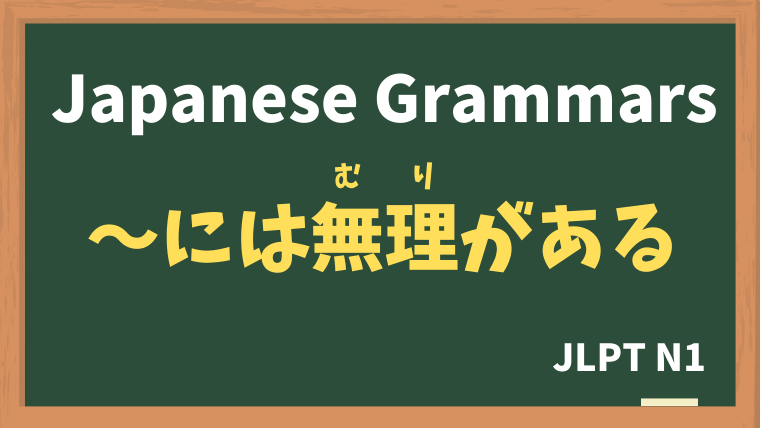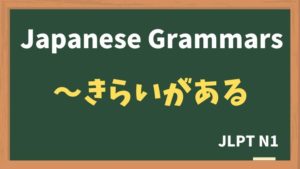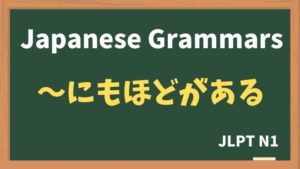
Explanation:〜には無理がある
fa-check-circleMeaning
"〜するのは難しい / 〜できない"
"It’s unrealistic to expect 〜 / It’s unreasonable to think 〜 / It’s impractical to assume 〜"
Used to indicate that something is unrealistic, unreasonable, or impractical. It conveys the idea that there are inherent limitations, contradictions, or problems with a certain plan, idea, or action, making it difficult or impossible to achieve or justify.
fa-check-circleForm
V(dictionary form)+ には無理がある
N + には無理がある
fa-check-circlePoints
- Unreasonable or Impractical: This expression emphasizes that something is not feasible or makes no sense in its current state.
- Expressing Difficulty: It is often used when pointing out why something is unlikely to work or succeed.
- Criticism or Doubt: The phrase carries a negative nuance, often used to question or criticize a plan, decision, or idea.
fa-check-circleJLPT Level
N1
Sample sentenes
こんなにたくさんの料理を一人で食べるには無理がある。
It is unrealistic to eat this much food by yourself.
この予算でシステムを作るには無理がありますよ。
It’s impractical to create a system with this budget.
部長の計画には無理があると思います。1ヶ月で作るのは無理です。
I think the manager’s plan is unreasonable. It’s impossible to complete it in one month.
今から毎日15時間勉強すれば、N1に受かると言われましたが、それには無理があります。
I was told that if I study 15 hours a day from now on, I would pass the N1, but that is unrealistic.
二泊三日の旅行で、観光地を全てまわるには無理があります。
It is unrealistic to visit all the sightseeing spots on a two-night, three-day trip.
Vocabulary
| Japanese |
English | |
| 予算 | よさん | budget |






